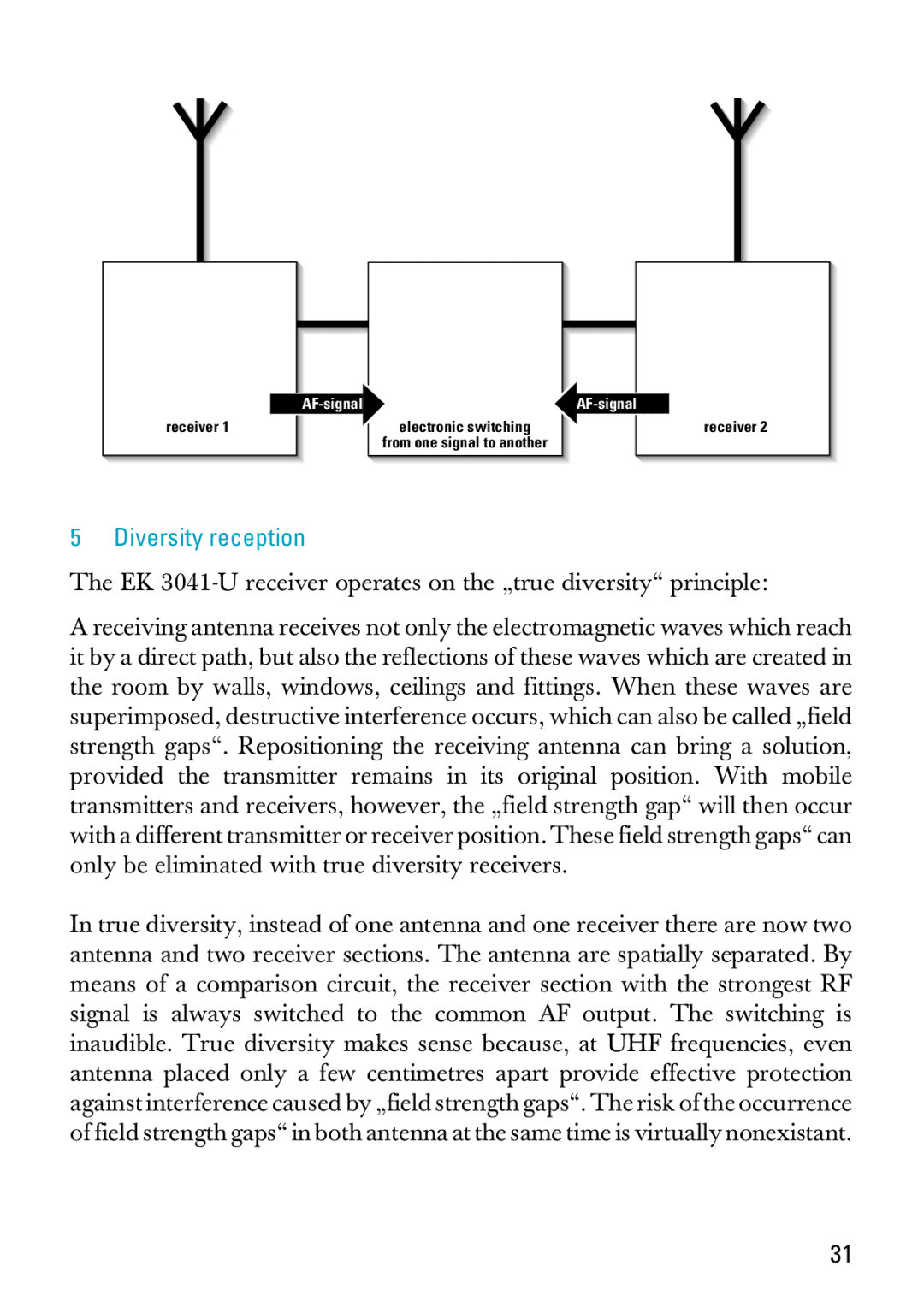
receiver 1
electronic switching
from one signal to another
receiver 2
5 Diversity reception
The EK
A receiving antenna receives not only the electromagnetic waves which reach it by a direct path, but also the reflections of these waves which are created in the room by walls, windows, ceilings and fittings. When these waves are superimposed, destructive interference occurs, which can also be called „field strength gaps“. Repositioning the receiving antenna can bring a solution, provided the transmitter remains in its original position. With mobile transmitters and receivers, however, the „field strength gap“ will then occur with a different transmitter or receiver position. These field strength gaps“ can only be eliminated with true diversity receivers.
In true diversity, instead of one antenna and one receiver there are now two antenna and two receiver sections. The antenna are spatially separated. By means of a comparison circuit, the receiver section with the strongest RF signal is always switched to the common AF output. The switching is inaudible. True diversity makes sense because, at UHF frequencies, even antenna placed only a few centimetres apart provide effective protection against interference caused by „field strength gaps“. The risk of the occurrence of field strength gaps“ in both antenna at the same time is virtually nonexistant.
31
